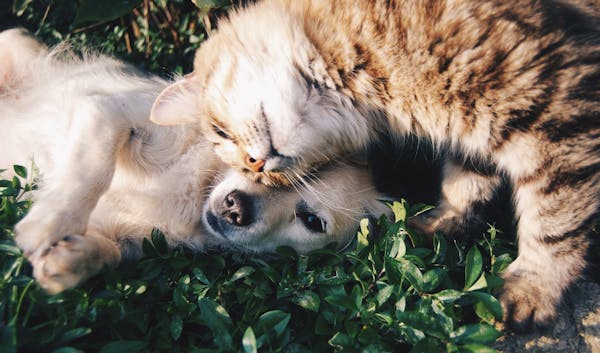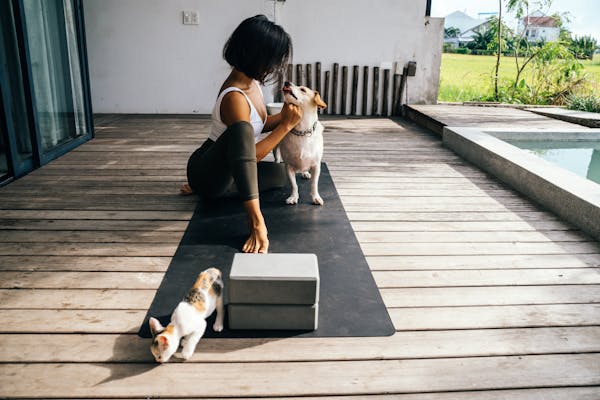You want to provide your pet with the best possible care because you are a pet parent. to keep them happy and healthy, this involves doing things every day. For a lifetime of healthy and happy cats and dogs, follow these eight responsible pet care tips year in and year out.
1. Veterinarian Visits
Visits to the Veterinarian Regular visits to the vet are the first step toward responsible pet ownership. Your dog or cat should get a checkup at least once or twice a year because they live longer than humans. Your pet may visit the veterinarian more frequently when they are young, depending on their vaccination schedule, but keeping up with their visits as they get older is necessary for establishing and maintaining good health.
Visits to the veterinarian can be, shall we say, difficult. Cats, in particular, may be reluctant to leave their cozy home, but there are ways to alleviate stress for you both. When your cat is a kitten, it's a good idea to get used to her carrier so she doesn't run away and hide under the bed. Dogs typically enjoy car rides. Your dog will not associate getting in the car with going to the vet if you take him on joyrides. Additionally, if you choose a veterinarian who is a good fit for your pet, many pets will not mind making the trip to the office.
2. Vaccinations
Vaccinations Vaccinating your pets is an essential part of giving them good care. Make an appointment for your pet to be immunized as soon as you bring your new pet into the house. The veterinarian will establish an immunization schedule for your young dog or cat during your first visit to prevent illness and disease.
Puppies should receive vaccinations as soon as possible after they are brought home. At your first appointment, discuss the best time to schedule a visit with your veterinarian. They aid in the prevention of distemper, Lyme disease, and rabies. Vaccinations against rabies, feline leukemia, and herpes virus are beneficial to cats. If you have adopted a senior or adult animal, ensure that they are also immunized. Vaccinations do have to be renewed, and they are not just for young pets.
3. Proper Identification
Proper Identification Having proper identification is the key to a happy ending in the event of the unthinkable: your child gets lost, and children in particular are prone to dash out the door. Begin with the essentials: a tag with all of your contact information, a secure collar, and Because there is always a possibility that a collar will fall off, microchipping your pet is recommended in addition to an identification tag. A scanner can read the microchip, which is an electronic device about the size and shape of a grain of rice.
It is inserted under your pet's skin and retrieves your identification information. You and your beloved pet can be reunited with a combination of these forms of identification, but only if you keep your contact information current. If you've moved or changed your phone number, make sure to update the information on the microchip.
4. Spaying/Neutering
Spaying and neutering your pet reduces the number of homeless animals and prevents a variety of health issues, including complicated pregnancies. Your cat's risk of developing cervical cancer, ovarian cancer, and "heat" is greatly reduced when she is spayed (her uterus and ovaries are removed). She will be less likely to leave the house in search of a partner as a result, and any male cats in the area will be less aggressive (they won't spray to mark their territory, which is good for you and your furniture).
If you neuter your puppy, you can stop him from getting testicular cancer and stop him from being aggressive and roaming the neighborhood. Your pet will likely spend at least one night at the veterinarian's office for observation and recuperation because spaying or neutering is a surgery that requires general anesthesia.
5. Healthy Food
Healthy Food Providing animals with clean, cool water and healthy food at all times are two connected aspects of responsible pet ownership. By providing them with the energy and nutrients they require, the appropriate pet food will enrich your best friend's life. It can be overwhelming to choose from so many different meals, but by becoming familiar with important ingredients and how they benefit your cat or dog, you can quickly become an expert.
Look for a good balance of protein, carbs, and fats in the best cat food. In addition, dog food should contain a lot of fiber, which is beneficial to the digestive system. Choose a pet food formula that is appropriate for your pet's age, health conditions, and activity level, and consult your veterinarian before switching to a specialized food for your pet.
Care at Home As the pet owner, it is your responsibility to teach your pets good hygiene habits at home as well as at the vet or groomer. They stay in great shape by brushing their teeth, combing their coats, and eating healthy food. Put hygiene and grooming tasks on your calendar and try combining them, such as using a reassuring comb after trimming nails, until it becomes a routine to keep up with responsible pet care.
7. Comfy Quarters
Comfortable Quarters Check to see if you are providing your pet with a secure and inviting environment as the seasons change or as you rearrange your living space. Is the dog bed a little flat? Buy a new one for your dog. Is the litter box area no longer sufficient? With a new scoop and box, you can give your cat's bathroom a new look. Additionally, this is a good time to look for potential dangers. Secure safety gates, fix broken windows or screens, and get rid of any plants that are poisonous to your pet. Also, look for any cords or wires that are exposed because young animals love to chew on them.
8. Training and Socializing
Proper Socialization and Training One of the most crucial aspects of responsible pet care is ensuring that your dog or cat is well-trained. It is best and most effective to begin when they are young, but it is never too late to learn new skills. Obedience training and toilet training should be your top priorities for any animal in your household. Your puppy or kitten will develop a stronger bond with you and other pets if you teach them how to socialize. You can read at-home training guides or get recommendations for good trainers in your area from your veterinarian or the local animal shelter. A happy pet means a happy pet parent. A well-trained pet is happy.



Comments
Post a Comment